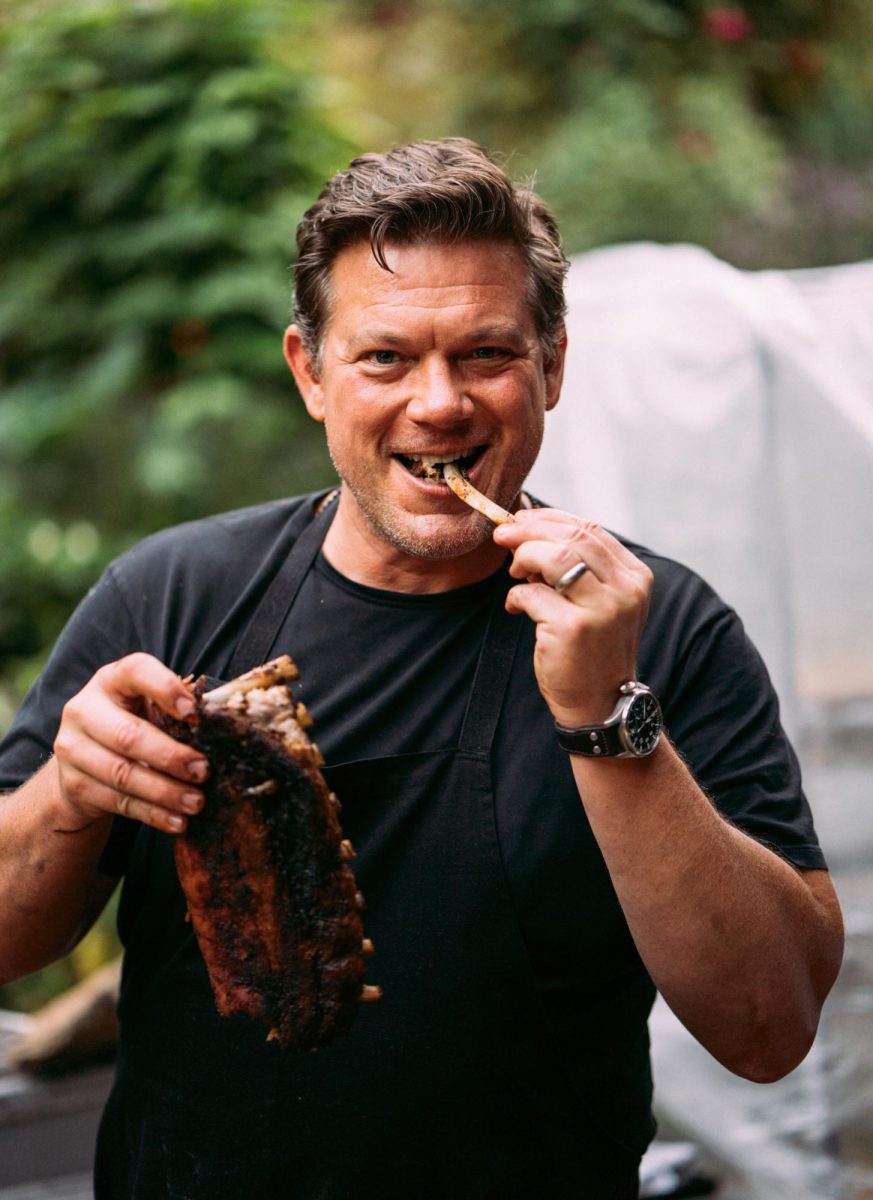In the U.S., the celebration of Christmas is often characterized by twinkling lights, gift-giving and images of Santa Claus and his elves. But how is the Christmas season celebrated in other countries? As the holiday approaches, senior Cesar Segundo Corona, junior Luis Schmidt Minestrelli and sophomore Adam Wilson reflect on their experiences celebrating the season in their respective international hometowns.

Before moving to the United States 11 months ago, Segundo Corona was raised in the town of Puebla, Mexico. In Puebla, as well as many other towns in Mexico, Catholicism is the primary religion. Along with celebrating Christmas Day, Catholics in Mexico also celebrate Las Posadas, which translates to “inns” or “dwellings.” The celebration lasts from Dec. 16 through Dec. 24 and commemorates the nine-day journey Mary, known as María, and Joseph made between different inns before reaching a stable to give birth to Jesus Christ on Dec. 25, Christmas Day. Each night of Las Posadas is filled with prayers, dinner and socializing at different houses of neighbors, relatives and friends.
“[My grandparents] always host for one night [of Las Posadas],” Segundo Corona said. “All my uncles and cousins go. We interact with our family, our friends and neighbors as well.”
According to Segundo Corona, before dinner each night of Las Posadas, the attendees engage in traditional prayers to pay their respects to Mary.
“In the prayer there’s a pride for Jesus, María and the saints. It’s a really big deal. But the most important thing is that we are thankful for the birth of Jesus,” Segundo Corona said.
Although Segundo Corona respects this process, he is often distracted by thoughts of the festive dinner that follows the prayers.
“The prayers take about 30 minutes,” Segundo Corona said. “It’s not that bad. But me and my cousins are like, ‘Let’s eat, we’re starving, why are we still doing this?’”
Segundo Corona’s favorite traditional drink during Las Posadas is the hot ponche.
“[Ponche] has orange, apple, watermelon and other different fruits are on top of it,” Segundo Corona said. “Then you mix the ponche and then you taste it. It’s really good.”
This year, Segundo Corona will be spending Christmas Day with his family in Puebla, Mexico and a hot cup of ponche.

Before Schmidt Minestrelli moved to the U.S. at the age of 12, he most recently lived in Chaumont-Gistoux, Belgium. Saint Nicholas, a Christian Saint portrayed as Santa Claus’s main helper, is the celebrated Christian figure in European countries like Belgium where Christmas is celebrated. An important date for youth in these countries is Dec. 6. According to Schmidt Minestelli, if the kids awakened and found candy in their shoes from Saint Nicholas, it signified that Santa Claus knew they behaved well and would receive many presents from him.
“If you had candy you knew you were good,” Schmidt Minestrelli said. “That was a good sign because it meant that Santa Claus was going to listen to what you wanted for Christmas.”
Saint Nicholas serves as a role model for the kids who grow up celebrating him. They want to be viewed by Saint Nicholas and Santa Claus as good kids in order to receive the candy and presents. When he was young, Schmidt Minestrelli could even notice a change in behavior of many peers before Dec. 6.
“After Saint Nicholas came to class or was around town, my friends in class would become so much nicer in general,” Schmidt Minestrelli said.

Schmidt Minestrelli noted that Saint Nicholas was often used by parents to encourage their kids to behave kindly and not unruly. The first time Schmidt Minestrelli remembers sitting on Saint Nicholas’s lap, Saint Nicholas already knew his name and a few small, mischievous acts he had done at school.
“I think my mom told [him] a couple things I was doing bad at home and so he told me, and since then I wanted to be nice so I could get presents,” Schmidt Minestrelli said. “And what he would say was, ‘I’ll tell Santa Claus you were not good,’ which meant that you wouldn’t get any presents basically, so you have to be nice after that.”
During this holiday season, Schmidt Minestrelli remembers the prior Christmases when he was able to spend time with his godparents, cousins, uncle, aunt and grandfather who still live in Europe.
“Because we live in different countries, the amount of time we spend together is not too much [anymore],” Schmidt Minestrelli said. “I always looked forward to just being able to see them, communicate with them and enjoy their presence, and the gifts of course.”
Sophomore Adam Wilson also remembers holidays spent with his family and neighbors in his home country of Jamaica. “Everybody was very focused on Christmas,” Wilson said. “It was a big deal. Everybody bought Christmas trees and decorations. People didn’t really decorate outside their house, but they would often decorate inside.”

Although Wilson does not practice Christianity, he was still invested in the giving spirit that the holiday season evoked. Every Christmas, he baked brownies for his neighbors.
“My neighbors would always invite me to use their pool so I made brownies every year to thank them,” Wilson said.
Wilson’s school also held a gift drive during the Christmas season.
“[My school] gave the gifts to schools where there were children that were not well-off:orphanages or the kid’s hospital,” Wilson said.
Wilson notes that Christmas Day celebrations are very festive in Jamaica.
“On Christmas Day, there are a lot of parties,” Wilson said. “Jamaica has a lot of parties. It’s a party island.”
On Christmas Day, the Wilson family would celebrate at their family friend’s house. The Christmas dinner included Guyanese food, as their family friends were from Guyana, but traditional Jamaican food and drink were also included. According to Wilson, the most popular drink for Jamaicans during the holiday season is sorrel, a red beverage made of the native sorrel plant, ginger, and sugar.
“Since [sorrel] includes ginger, it sort of burns in your mouth like soda,” Wilson said. “But it’s really sweet too so it’s really good.”
Wilson’s favorite holiday memory was when his grandmother visited his family in Jamaica to celebrate Christmas last year. It was the last Christmas that the family would spend together in Jamaica before moving to the U.S.
“[Grandma] lived in New Orleans for a while so she has a cool accent and she tells a lot of fun stories,” Wilson said.






